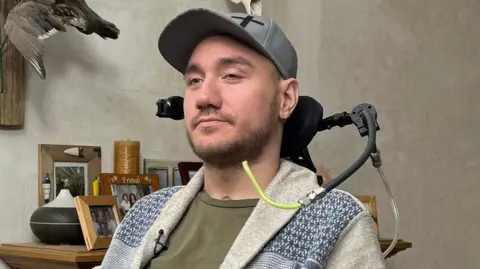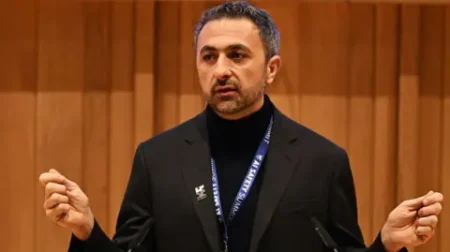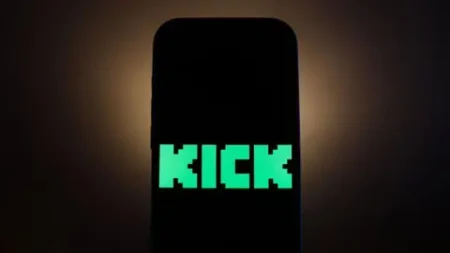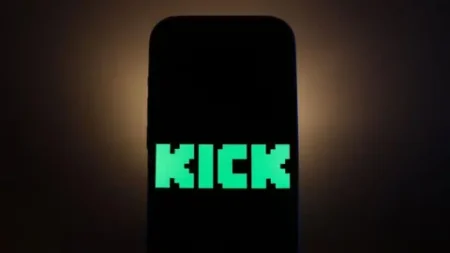In a groundbreaking development that seems to transcend the boundaries of science fiction, Noland Arbaugh has emerged as a pivotal figure in the realm of neurotechnology. On January 2024, nearly eight years after being paralyzed from the shoulders down as a result of a diving accident in 2016, Noland became the first recipient of a brain chip designed and developed by Neuralink, a neurotechnology company co-founded by the influential entrepreneur Elon Musk. This chip is said to have the ability to facilitate the translation of brain signals into computer commands, thereby enabling its user to control devices merely through thought.
Noland found himself in the spotlight not just for being a trailblazer in this brave new world of brain-computer interfaces (BCIs) but also because of the high-profile nature of Neuralink and its founder. Although there are other companies developing similar technologies, it is Neuralink’s association with Musk that has undoubtedly propelled Noland’s story into the headlines, garnering immense attention and sparking conversations around the ethical, privacy, and societal implications of such technology.
When asked about his journey, Noland openly acknowledged the risks that accompany such an experimental procedure. He expressed a sense of hope and responsibility, stating, “good or bad, whatever may be, I would be helping.” His commitment to contributing to the scientific community is evident as he emphasizes that the focus should be on how this technology can advance scientific understanding. Beyond his personal aspirations, he recognizes the broader implications of his participation in the Neuralink study, alluding to the contributions it could make towards future advancements.
Living under the cloud of paralysis has imposed significant challenges on Noland’s life. As he articulates, it stripped him of his autonomy, forcing him to depend on others for nearly every basic need. With the Neuralink device, which operates by interpreting the tiny electrical impulses generated by the brain when a person thinks about movement, he has begun to reclaim some of his lost independence. This technology converts brain activity into digital commands, allowing Noland to navigate a computer screen with his thoughts. Such advancements could potentially restore a fraction of autonomy to those with similar disabilities.
Reflecting on the experience post-surgery, Noland described an immense sense of wonder upon realizing that he could control a cursor simply by thinking about moving his fingers. Surrounded by enthusiastic Neuralink staff, the reality of this digital empowerment hit him profoundly, leading to the remarkable realization that he could once again engage in activities such as playing chess and video games—a passion he had to forfeit following his injury. This newfound capability was not only a return to a beloved pastime but also a demonstration of the vast potential embedded in Brain-Computer Interface technology.
While the optimism surrounding Noland’s progress is palpable, experts caution against overlooking the myriad challenges that BCIs present, particularly regarding privacy and ethical concerns. Professor Anil Seth, a neuroscientist, emphasized the troubling question of what it means to have access to thoughts and emotions through such technology. There exists a thin line between innovation and invasion of privacy, as these devices could potentially decode personal beliefs and feelings—a concern that raises profound ethical questions.
Elon Musk’s involvement in Neuralink has undeniably played a role in magnifying the attention surrounding both the company and Noland’s story. The tech has attracted considerable financial backing, yet it also comes with heightened scrutiny due to its invasive nature. Experts and observers alike are taking note that while the technology exhibits extraordinary promise, it is still in its infancy, and careful evaluation is essential to ensure safety and efficacy.
As the landscape of neurotechnology continues to evolve, it stands as both an exciting frontier and a source of moral contemplation. Noland’s experience not only reflects individual resilience but also represents a larger movement toward what may one day become commonplace, transforming how we interact with technology. With ongoing studies and advancements in mind, Noland hopes for further iterations of the chip, dreaming of a future where he can control a wheelchair or more advanced robotics, expanding his capabilities significantly.
In essence, while the journey of Noland Arbaugh and Neuralink illustrates the nexus of technology and human experience, it also serves as a reminder of the ethical complexities that accompany rapid advancements in understanding the human brain. This intersection of innovation and morality will undoubtedly shape the conversations we engage in as a society in the coming years.










